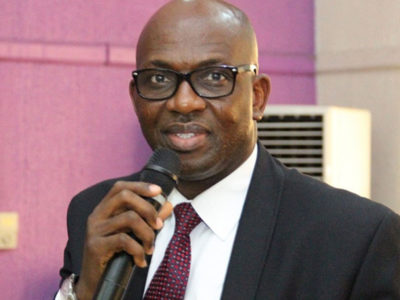To ensure that Nigeria is not short-changed in the Liquefied Natural Gas market, there have been changes in the Board of the Nigerian Liquefied Natural Gas, NLNG.
A Nigeria national newspaper, THE NATION, had reported “uneasy calm at the headquarters of the NLNG, the state-controlled liquefied natural gas (LNG) company, over the lifting concessions given to IOC shareholders over others.
Managing Director of Nigeria LNG, Tony Attah, who is a Shell employee, will be leaving his position end of August. Philip Mshelbila, currently serving as CEO of Atlantic LNG, in Trinidad & Tobago, will replace him.
The criticisms are coming at a time the price of LNG is soaring globally and Nigeria LNG production capacity is expected to rise from 22 million metric tons per annum to 30 million metric tons per annum.
Consequently, Total has asked its Representative, Patrick Olinma, a former Executive Director to proceed on immediate retirement, under controversial circumstances, while a replacement is yet to be announced by Total.
It is reported that Patrick Olinma’s exit from Total was greeted with jubilation within Total Nigeria and NLNG.
Olinma who was once a General Manager in charge of Commercial unit of NLNG, joined the NLNG board in Second quarter of 2020.
During his stay on the board it was reported he spearheaded an agenda that was anti Nigerian.
Also, Mohammed Abdulkabir the new Group Executive Gas and power of NNPC, will join the board of NLNG, as the new NNPC representative.
Sequel to the signing of the Petroleum Industry Act (PIA) by President Muhammadu Buhari, it is believed that the Economic and Financial Crime Commission (EFCC) may show interest in what is going on in NLNG to ensure Nigeria is not short changed or disfranchised.
NLNG, which is 49% owned by the Nigerian government through the Nigerian National Petroleum Corporation, has IOC shareholders including Shell Gas B.V which owns 25.6%, Total LNG Nigeria which owns 15% and Eni International, which owns 10.4%.
The NLNG operates an “equity lifting” project in which its joint venture partners — Shell, Total and Eni — have an obligation to off-take, transport and market the LNG cargoes.
However, a report by THE NATION revealed that the IOC shareholders who are responsible for the failure of gas supply are given favourable lifting terms over others leading to a series of deferrals, defaults and cancellation, creating an in-house crisis and market tension for the NLNG.
In simple terms, it implies that the IOC shareholders abandon cargoes to others when the market is weak and ensure they take all volumes when market gets stronger, at lower purchase values from NLNG. It is reported that the Government of Nigeria is exposed to losses due to this sharp practice.
According to a news report by TheCable, Naturgy, a Spanish multinational natural gas and electric company, recently levelled allegations of discriminatory/antitrust practices against NLNG IOC shareholders, accusing them of sharp practices, it seems it was in NLNG interest to settle matters due to reputational risk, perception of corruption and exposure of the IOC shareholders to International jurisdiction investigations.
Investigation showed that gas supply targets have been impacted due to Eni AGIP’s 50 per cent supply mark to the plant, compared to Total and Shell 90 per cent mark.
A source said: “The Nigerian LNG production capability is still at an impressive level of close to 90 per cent, which if managed properly, and concessions are made by IOCs shareholders lifters, could lead to an avoidance of performance reputational risk the Nigerian LNG is currently been plagued within Global Markets. Independent third-party Gas supply could also be a solution.
The source also said, “Whilst the International Oil Company shareholder lifters have the capacity to take almost all of the LNG volumes produced, there has been a growing concern in Global Markets about conflicts and undue advantage.”
“These IOCs’ shareholders derive better terms and flexibilities over others, supplying in the same market, which could lead to anti-trust and anti-competition litigations and petitions”.
Recall that President Buhari had said during the Train 7 ground breaking event that the NLNG earned revenue of $114 billion over the years, paying $39 billion in taxes and $18 billion in dividends to the federal government.


